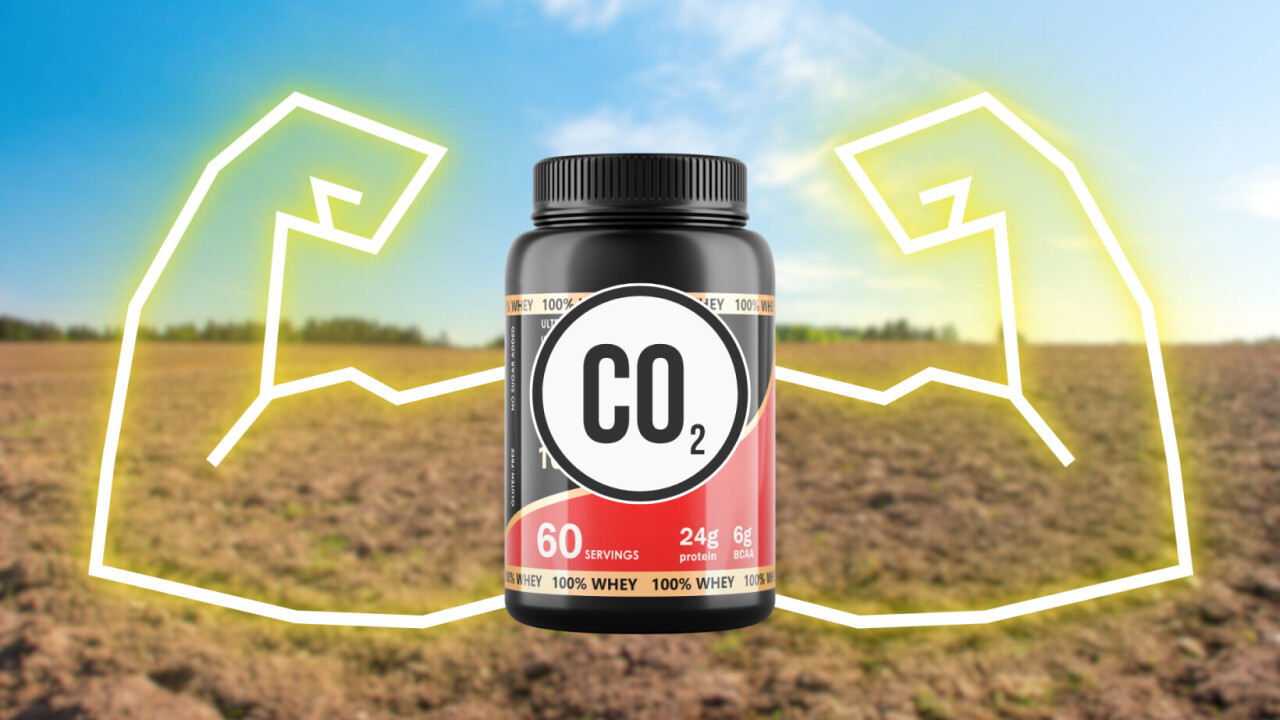
A British startup has devised a way to speed-up enhanced rock weathering using protein powder in a potential step forward for the budding carbon capture industry.
Enhanced rock weathering (ERW) involves spreading silicate rock dust on fields to capture carbon. When it rains, the dust reacts with the CO2 in the droplets, permanently storing it in the rocks as carbonate (think chalk or baking soda).
This relatively simple technology has taken off in recent years, attracting funding from the likes of Meta, Google, and Microsoft. However, there are a few kinks that need ironing out.
One issue is that ERW can take decades to pull carbon from the air. You can speed this up using ultra-fine dust, but this is hard to source at scale. London-based startup FabricNano has developed a workaround.
FabricNano has found that spreading protein powder — carbonic anhydrase enzymes to be exact — on crushed basalt rock can speed up carbon capture. It cuts the time from decades to just a couple years.
“Learning from nature, [this protein] naturally acts to lock carbon within the ground,” said Grant Aarons, CEO and founder of FabricNano. “It is found in plentiful supply in agricultural soils around the world.”
FabricNano specialises in cell-free biomanufacturing. The startups takes enzymes out of cells and binds them to materials, which increase the viability of the proteins. This helps to produce bio-based alternatives to things like pharmaceuticals, chemicals, and other enzymes.
The company has secured almost $25mn in funding to date, including from celebrity actor Emma Watson and Twitter co-founder Biz Stone. This is the company’s first foray into carbon capture.
Pairing biology with geology
FabricNano has teamed up with French resource management giant Veolia to trial the new tech.
The partners will combine the protein powder with silicate rock on a stretch of farmland near Bicester, UK. The land is managed by Oxford Agricultural Trials — which acts as an open air laboratory for agriculture research.
The trial will use locally sourced, larger rock particles from nearby mining operations. The aim is to prove that the technology is an efficient, scalable method to capture large volumes of CO2..
With 17 million hectares of agricultural land and over 2 billion tonnes of basalt rock reserves in the UK, ERW has the potential to help countries decarbonise. However, like many emerging carbon capture technologies, rock weathering is still unproven at scale.
“[ERW] still requires innovation — and government oversight,” said Aarons in an op-ed for TNW.
This year, Veolia plans to spread 30,000 tonnes of basalt rock powder across farmland. For every tonne of carbon removed, it will sell one carbon credit. Companies and countries can buy these credits as a way to offset their emissions.
By tapping the logic of capitalism, so-called voluntary carbon markets are intended as an efficient way to create demand for technologies like rock weathering. When it comes to methods like ERW, it’s still very difficult to measure how much carbon has actually been sequestered. Issuers of these credits have come under mounting scrutiny for overinflating their value.
“Governmental intervention is essential to legitimise carbon markets and spur widespread adoption of this critical technology,” said Aarons.
Get the TNW newsletter
Get the most important tech news in your inbox each week.





